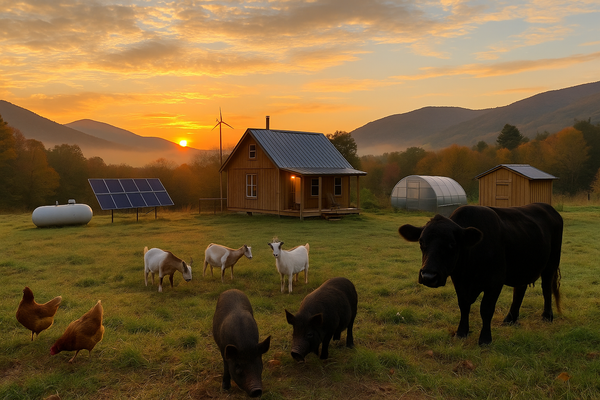
NEW: OFF GRID STORIES EDITION COMING SOON!
Sign up now to get first dibs! Save $50 off the regular price

Grab a FREE sample issue of Off Grid Living & Survival.
Signup takes 10 seconds. You’ll also unlock 200+ articles & essays and exclusive content — all FREE.


Sign up now to get first dibs! Save $50 off the regular price

SUBSCRIBE NOW FOR $49 LIFETIME MEMBERSHIP TO HELP FUND THE OFF GRID CAMPER BUILD

I'm proud to present our own Off Grid Living & Survival group member as she tells us how she and her partner built her off grid dream. Subscribe now to read the exclusive story.

Real Lives, Real Setups, Your Fast-Track to Freedom + 40 FREE Back Issues

Sign up now to get first dibs! Save $50 off the regular price

SUBSCRIBE NOW FOR $49 LIFETIME MEMBERSHIP TO HELP FUND THE OFF GRID CAMPER BUILD

This 2-million-member group and the blog don’t run on good vibes.

Real Off-Grid Stories. Real Setups. No BS.

How About A Weekly Off Grid Story!?

SUBSCRIBE NOW FOR INSTANT DOWNLOAD! UNLIMITED ACCESS!

NEW ISSUE LIVE ON THE SITE!

I'm proud to present our own Off Grid Living & Survival group member as she tells us how she and her partner built her off grid dream. Subscribe now to read the exclusive story.

Real Lives, Real Setups, Your Fast-Track to Freedom + 40 FREE Back Issues

Save $50 Off The Regular Price Of The Lifetime Membership + Get All Back Issues FREE!

If you’re serious about living off grid in the desert, you need a power system that’s reliable, redundant, and easy to maintain.

Get unlimited access to the latest issue, instant download, all back issues, all future issues, and members-only specials while your membership is active.